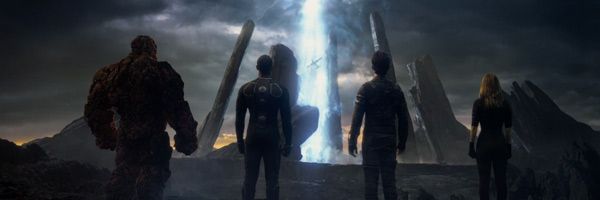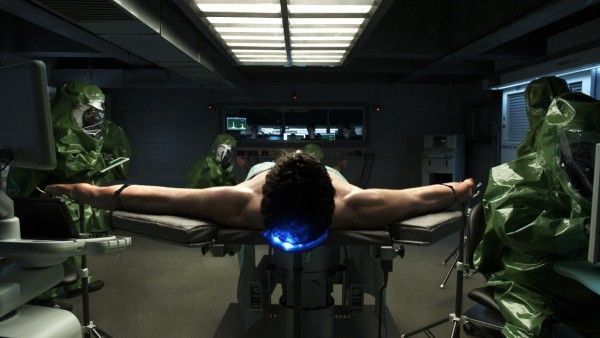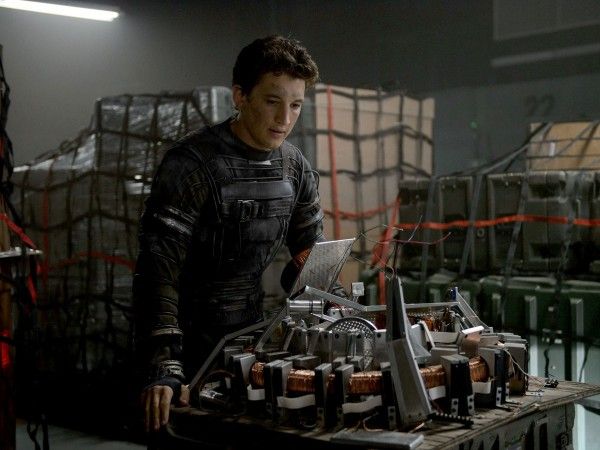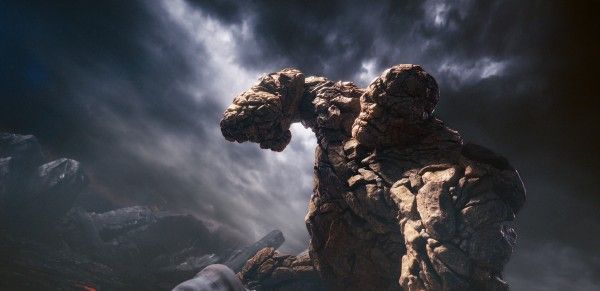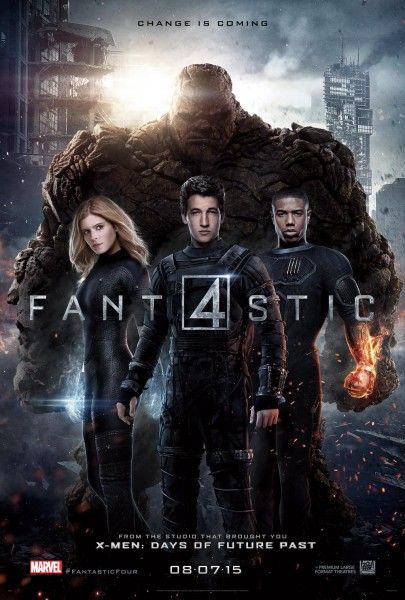The “Fantastic Four” are known as “Marvel’s First Family”, but that doesn’t come across in their latest film adaptation. Josh Trank’s Fantastic Four is four super-powered people who have the same superpowers and birth names as Marvel Comics’ Fantastic Four, and that’s where the similarities end. What makes the comic’s team special—the family aspect—is completely lost beneath an absolute slog of a movie that obsesses over explaining how they got their powers and how they use those powers together. The character relationships are shallow and perfunctory, and while the movie flirts with an interesting idea of generational responsibility, Fantastic Four ultimately feels like a throwback to a time when superhero movies surgically removed everything that was fun in an effort to be taken seriously.
Genius Reed Richards (Miles Teller) and his pal Ben Grimm (Jamie Bell) are working on a teleportation device, which puts them on the radar of Dr. Franklin Storm (Reg E. Cathey), who is developing a project for the government to cross dimensions. Reed goes to work on the project at the Baxter Institute for brilliant young minds alongside Franklin’s adopted daughter Sue (Kate Mara) and the project’s aloof, resentful co-founder Victor Von Doom (Toby Kebbell). Johnny Storm (Michael B. Jordan), Franklin’s reckless son, also joins the team, and when they finally manage to breakthrough to the other dimension, they decide to take the transporter for a spin. However, their unauthorized joyride leads to disaster, and they come back with superpowers.
Fantastic Four spends its first two thirds being bland and shallow before becoming outright bad. Trank is far more invested in the particulars of his pseudo-science experiment than building character relationships. Everyone is painted with broad strokes, so Reed and Ben are “buddies”, Reed and Sue are “love interests”, Johnny and Franklin are “estranged”. Set aside the formation of the Fantastic Four (I don’t think Sue and Ben exchange a single line of dialogue); it’s hard to believe any of these people would care enough about the other to send a friend invite on Facebook.
Investing in the character relationships may have led to some levity and love, but both concepts are almost completely foreign to this movie. Fantastic Four is a mostly depressing affair that rejects colors, movement, and spectacle because Trank and co-writer Simon Kinberg are among those who confuse “dourness” for “realism”. This is a movie afraid of its own name, and when the characters finally get their powers, it feels like Trank is drawing inspiration from The Fly, which would be fine if he fully invested in the themes and characters for a darker spin, but Fantastic Four can only land the immediate gut punch. It never follows through, and it skips over what could have been a rich exploration of the characters’ individual growth post-powers.
Instead, after speeding past what any other story would seize on as great material for the characters to face personal obstacles, Fantastic Four lands at an atrocious third act that puts the good guys against the villain in a tedious, unimaginative battle that has the dramatic weight of a team-building exercise at a weekend corporate retreat. We’re not seeing anything of substance, and the film’s lone interesting theme—that the younger generation has to suffer for the sins of the older one—is rendered into a poor excuse for the bad guy to wreak havoc.
Part of me wants to applaud the boldness of Fantastic Four, and if it had achieved escape velocity, it could have flown in the face of a traditional adaptation and staked its own claim despite its vast difference to the comics. You can see all the little tiny pieces that could have added up to something better. Sue and Johnny being adopted siblings could speak to how family transcends bloodline. Reed and Ben’s friendship could illustrate how trust transcends intellect. There could be a comment on how it takes young heroes to make up for the failures of the past by watching them use their powers for good beyond a rote boss battle.
But none of that comes anywhere close to fruition. Fantastic Four feels like a holdover from when we didn’t expect superhero movies to have a clear tone, and simply slapping on the brand name was good enough. But now we know our superhero movies can be so much better, and this morose, limp reboot isn’t worthy of either its namesake or the current state of the genre.
Rating: D+

